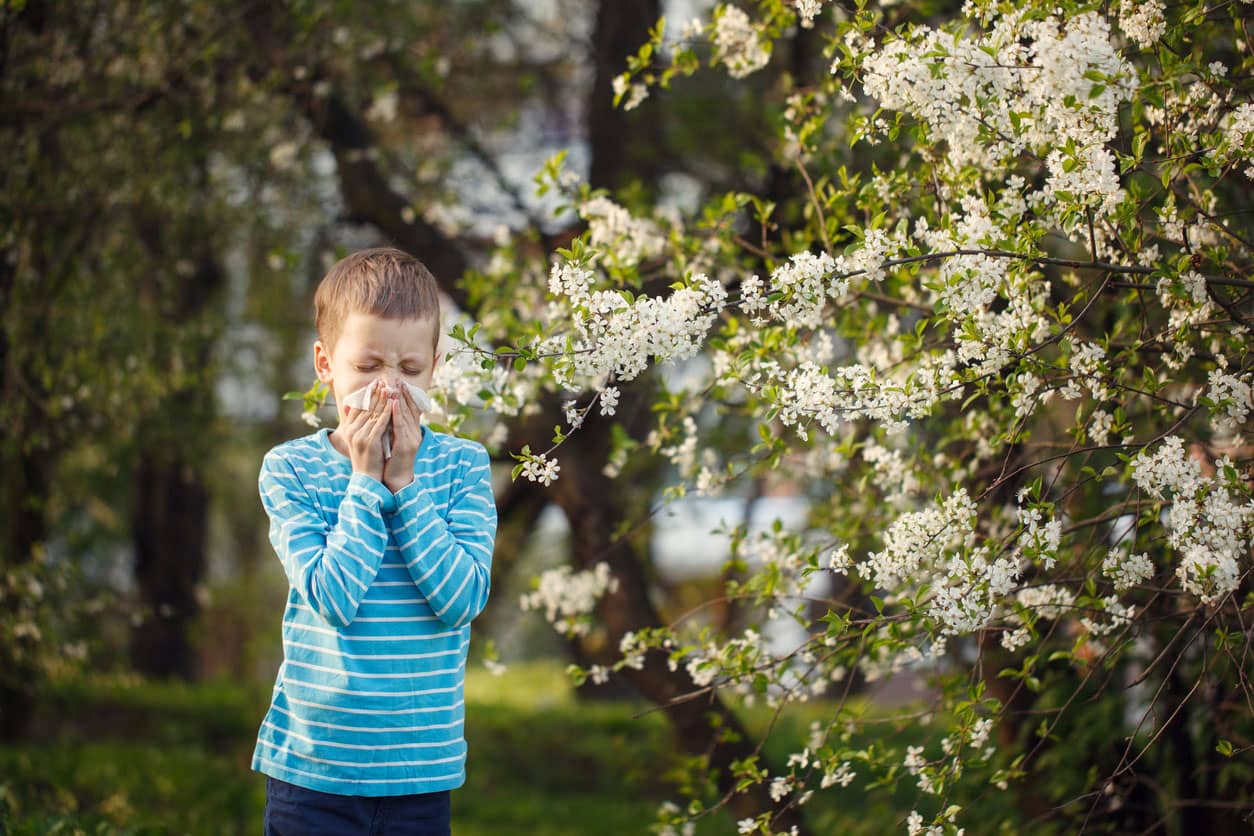
Spring Allergies and How to Remedy Them
Spring is a beautiful time of year filled with blooming flowers, warmer temperatures and longer days. But for those who struggle with seasonal allergies, this season can be full of discomfort and undesirable symptoms.
Allergies are common conditions that affect many people. Let’s look at what Cameron Family Medicine’s Dr. Jessica Ottenweller-Butcher suggests about managing your allergies this spring.
What Causes Allergies to Flare Up in the Spring?
Each year, trees, grasses, weeds and other plants start to flower and produce pollen, which can worsen symptoms for people sensitive to pollen. These plants can begin to produce pollen as early as late February and often continue producing through May.
Age and the seasonality of specific pollen types can also contribute to allergy flare-ups. We can develop new or different allergies as we age, and — depending what you’re allergic to — some allergy seasons can be worse than others. New exposures like different regional pollens or new pets can also affect symptoms.
What are Common Symptoms of Spring Allergies, and How Can You Remedy Them?
Dr. Ottenweller-Butcher says the most common spring allergy symptoms she sees are sneezing, nasal congestion, nasal drainage, postnasal drip, coughing, itchy eyes, watery eyes, itchy nose or throat, and fatigue. Those who experience seasonal allergies can have any combination of these symptoms and may occasionally experience less common symptoms like rashes or swelling.
There are many small lifestyle changes you can make to reduce the severity of spring allergies, such as avoiding the outdoors when the pollen count is elevated; limiting time outside on dry, windy days and early in the morning; avoiding mowing and weed pulling; immediately removing clothes that have been worn outside and showering off when returning inside; and wearing a face mask.
In addition to these simple habits, the following at-home remedies can also help alleviate symptoms:
- Use a sinus rinse like neti pot or other saline rinses daily.
- Consume 1-2 tablespoons of local honey daily. This can, in theory, work like a type of oral immunotherapy with repeated low-dose exposure if you are allergic to the pollen contained inside.
- Use a dehumidifier to keep indoor air dry.
- Reduce exposure to pollens by keeping windows shut and placing HEPA filters in the home and on vacuums.
- Do not hang laundry outside.
- Use air conditioning in the house and car.
Common allergy medicines are also a way to address discomfort. However, if your child is starting a new medication or supplement for allergies, make sure to consult your doctor to ensure it is safe for them to take.
If you’re looking for support for your allergies and symptoms this spring, call Cameron Family Medicine at 260-667-5783, or visit cameronmch.com/services/family-medicine to schedule an appointment with Dr. Ottenweller-Butcher and her team.
©2024 Cameron Memorial Community Hospital
416 E. Maumee Street, Angola, IN 46703

Recent Comments